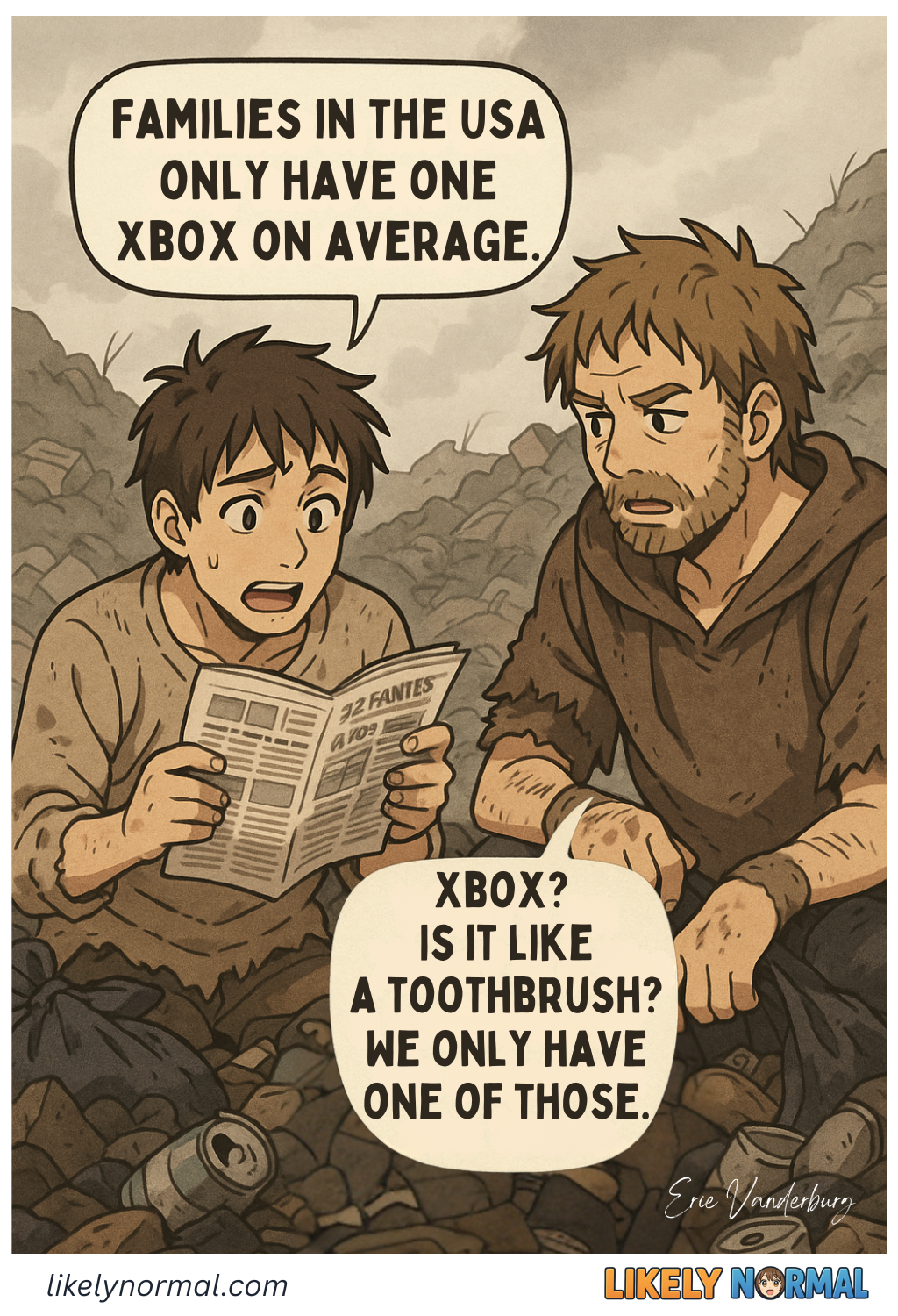First World Priorities
There’s a special kind of first-world existential crisis that occurs when you’re forced to share a single game console with your entire household. The sheer injustice of it all – having to negotiate screen time like some kind of pre-industrial peasant while your little brother dominates the TV playing Fortnite for the seventh consecutive hour. You’d think we were rationing clean water rather than debating whose turn it is to play the new Zelda game. This profound suffering happens against the backdrop of a world where actual deprivation exists – where some children walk miles for drinking water while we complain about having to walk fifteen feet to the fridge for a soda refill.
The domestic console wars create battlefields more intense than any Call of Duty lobby. Siblings develop elaborate time-sharing agreements with more clauses than the Geneva Convention. Parents become unwilling UN peacekeepers, mediating conflicts over controller priority with all the enthusiasm of someone defusing a nuclear bomb. Meanwhile, the family pet learns to recognize the PlayStation startup chime as a signal to hide under the bed. All this drama unfolds in climate-controlled homes where the biggest hardship is occasionally having to pause an online match to use the bathroom – a true test of human endurance.
Yet somehow, through all this manufactured suffering, we maintain the audacity to declare ourselves gamers with straight faces. We’ll rage-quit over lag spikes while people in developing countries would kill for reliable electricity. We’ll complain about loading times longer than thirty seconds while others wait hours in line for basic necessities. It’s a peculiar kind of privilege that lets us treat luxury inconveniences like profound personal struggles – the modern equivalent of medieval kings complaining their throne was slightly too hard.

Discussion ¬